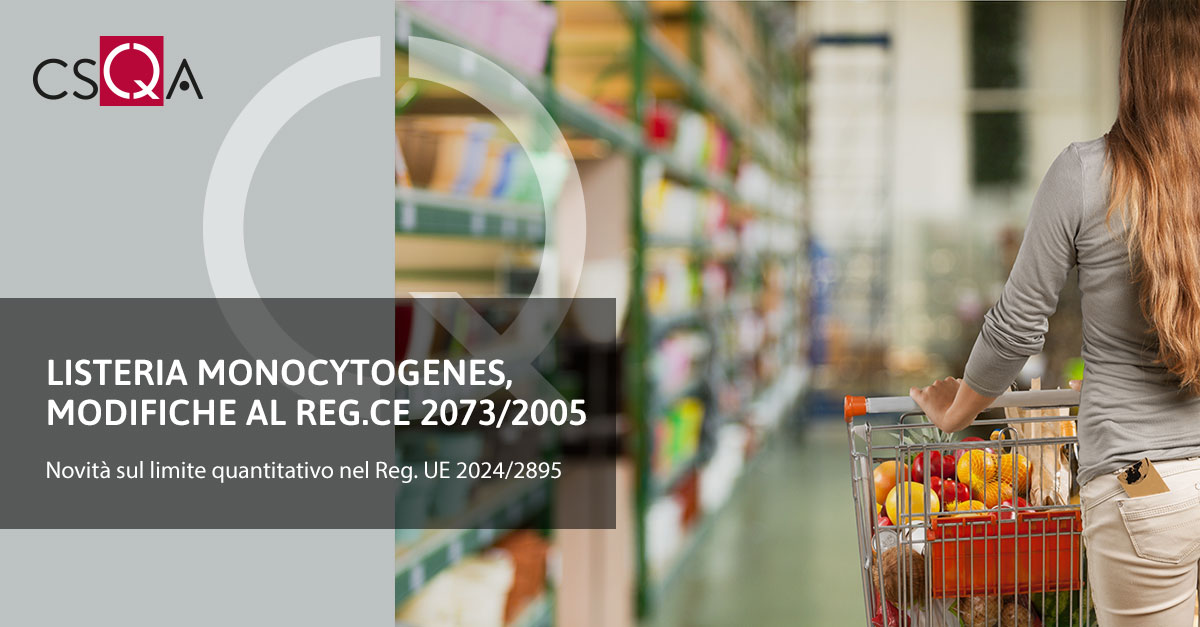 Commission Regulation (EU) 2024/2895 of 20 November 2024 amending Regulation (EC) 2073/2005 as regards Listeria monocytogenes has been published.
Commission Regulation (EU) 2024/2895 of 20 November 2024 amending Regulation (EC) 2073/2005 as regards Listeria monocytogenes has been published.In its latest report on zoonoses, EFSA noted that in 2022 the number of cases of listeriosis in humans in the EU had increased by 15.9% compared to 2021 and that the number of deaths following food-borne outbreaks caused by Listeria monocytogenes in the EU in 2022 was one of the highest reported to EFSA in the last ten years.
In light of this increase in listeriosis cases in the EU, it is essential that food safety criteria for Listeria monocytogenes are able to provide a high and uniform level of consumer protection throughout the food chain.
The risk of contracting listeriosis through food is influenced both by the individual susceptibility of the consumer and by the ability of contaminated foods to constitute a favorable medium for the growth of Listeria monocytogenes at high levels.
Children and consumers with weakened immune defenses due to illness, disease or pathological conditions are highly susceptible to Listeria monocytogenes and should not be exposed to foods containing this pathogen at any concentration.
For other consumers, it is scientifically recognized that only the ingestion of foods containing a concentration of Listeria monocytogenes above the limit of 100 cfu/g is potentially harmful to health.
Ready-to-eat foods other than those intended for infants and for special medical purposes which provide a favourable medium for the growth of Listeria monocytogenes above the limit of 100 cfu/g during their shelf-life therefore represent a sensitive group of food products on which risk mitigation measures should focus.
In order to ensure the same level of public health protection from production to distribution for ready-to-eat foods other than those intended for infants and for special medical purposes which provide a breeding ground for Listeria monocytogenes, the food safety criterion ‘Listeria monocytogenes not detectable in 25 g’ should apply to all situations where such foods are placed on the market during their shelf-life and for which the food business operator producing them has not been able to demonstrate to the satisfaction of the competent authority that the level of Listeria monocytogenes will not exceed the limit of 100 cfu/g during their shelf-life.
EU Regulation 2024/2895 shall apply from 1 July 2026. (Source: (https://www.ceirsa.org/ )